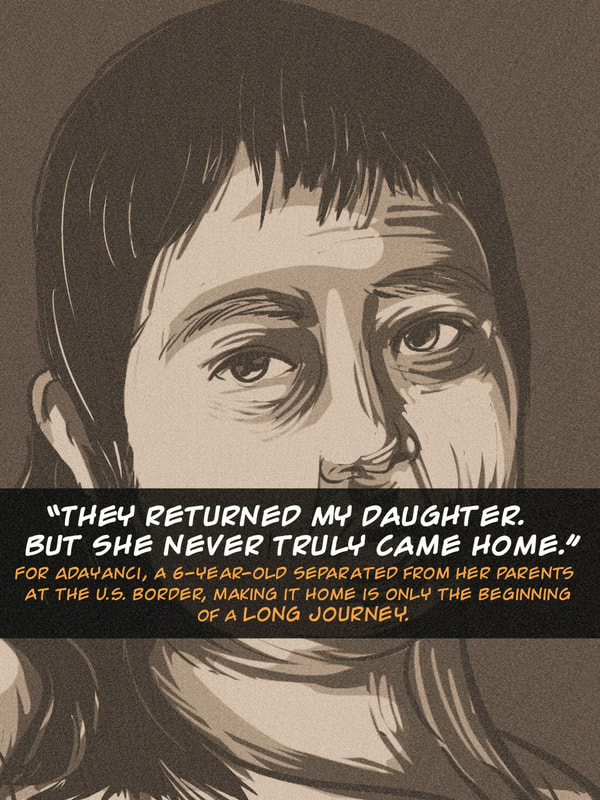“They Returned My Daughter, But She Never Truly Came Home” is one of Nairobi-based BRIGHT magazine’s many efforts to magnify stories that do not receive adequate attention in the global media landscape. An award-winning digital publication, BRIGHT covers fresh, relevant stories related to health, education, and social impact. Bringing marginalized narratives to the forefront, and offering human faces to the broader, more sensational stories that circulate widely in the news cycle, BRIGHT continues to push the boundaries of conventional journalism.
In October 2018, Univision produced a written story and video about the journey of Adayanci Pérez, a 6-year-old girl from Guatemala who came to the United States with her father and was immediately separated from him. They were among hundreds of families affected by the U.S Administration’s “zero tolerance” policy, which has since been suspended. Authorities told Adayanci that her father had gone to the doctor’s and would return the next day; in reality, he was deported home and she was placed with a foster family in Michigan. BRIGHT Magazine commissioned graphic novelist German Andino to retell the true story of Adayanci Pérez and her father, in comic form.
Focusing on “solutions-oriented stories” about social change, BRIGHT brings a rich, creative lens on social good to people who crave more nuanced perspectives on these topics. Editor-in-chief Sarika Bansal notes, “we're working to become the go-to source for stories on social change, and in the process, set the standard for this type of storytelling.”
In partnership with GHR, BRIGHT has brought special focus to the pressing issue of family separation at the U.S. border, publishing a collection of stories, told through media, that shed light on the lived experiences of migrants and the traumatic effects of child separation. In keeping with their self-reflective work, BRIGHT has also explored how journalism as a field can be more responsible in telling migration stories, avoiding exploitative techniques and aiming, instead, to forward narratives that are well contextualized, empathetic, and dignified.
In October 2018, Univision produced a written story and video about the journey of Adayanci Pérez, a 6-year-old girl from Guatemala who came to the United States with her father and was immediately separated from him. They were among hundreds of families affected by the U.S Administration’s “zero tolerance” policy, which has since been suspended. Authorities told Adayanci that her father had gone to the doctor’s and would return the next day; in reality, he was deported home and she was placed with a foster family in Michigan. BRIGHT Magazine commissioned graphic novelist German Andino to retell the true story of Adayanci Pérez and her father, in comic form.
Focusing on “solutions-oriented stories” about social change, BRIGHT brings a rich, creative lens on social good to people who crave more nuanced perspectives on these topics. Editor-in-chief Sarika Bansal notes, “we're working to become the go-to source for stories on social change, and in the process, set the standard for this type of storytelling.”
In partnership with GHR, BRIGHT has brought special focus to the pressing issue of family separation at the U.S. border, publishing a collection of stories, told through media, that shed light on the lived experiences of migrants and the traumatic effects of child separation. In keeping with their self-reflective work, BRIGHT has also explored how journalism as a field can be more responsible in telling migration stories, avoiding exploitative techniques and aiming, instead, to forward narratives that are well contextualized, empathetic, and dignified.


 RSS Feed
RSS Feed
